HOME
Letter from the editor
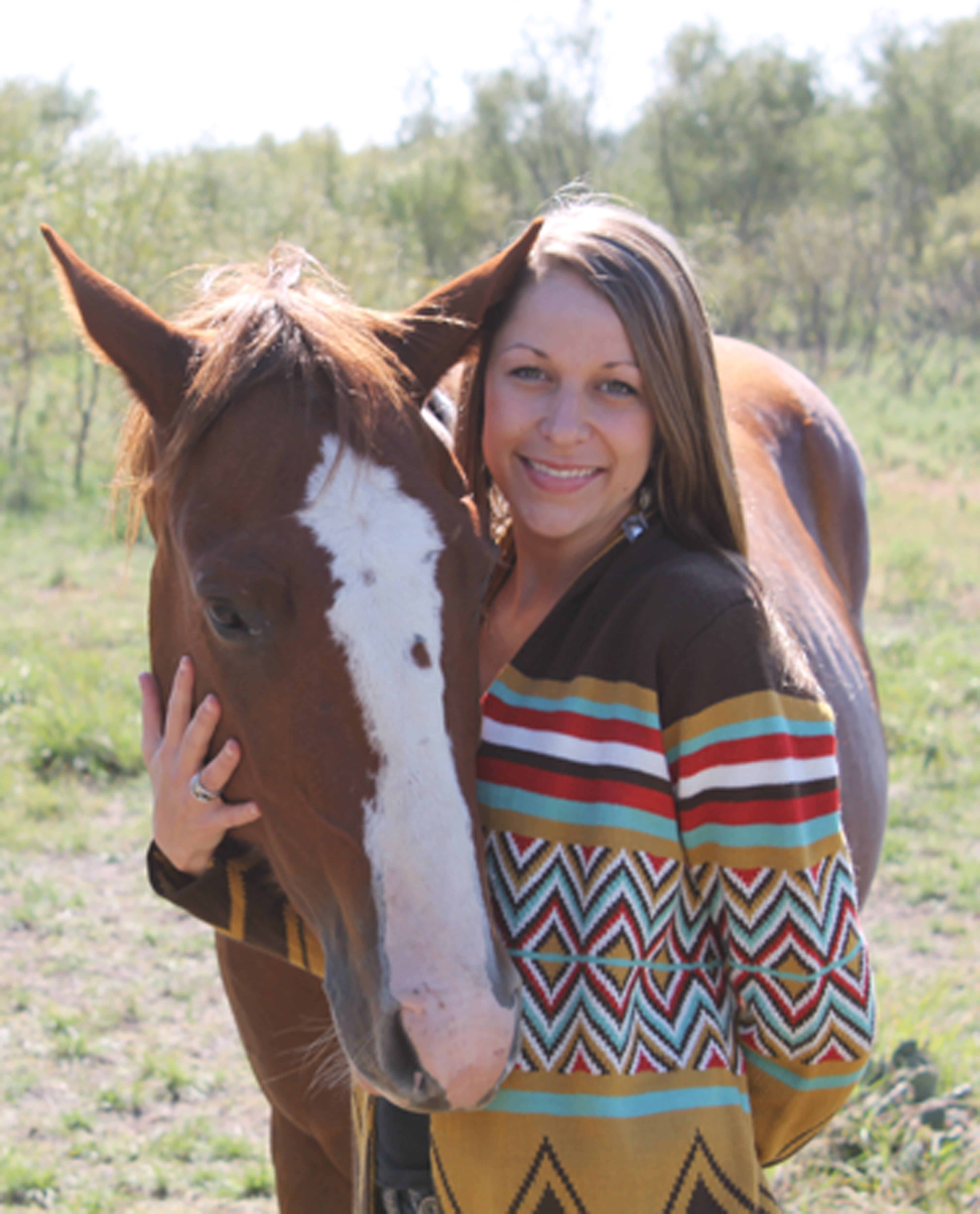
Hello NTFR readers and welcome to the June issue of NTFR. This month the magazine is popping with great content and beautiful colors from all the wildflowers.
This month Rayford Pullen discusses choices producers have when marketing cattle. After, read about the Cooke County Beef Cattle Improvement Association. The association is dedicated to supporting and promoting the beef cattle industry and introducing it to the youth through education.
Our resident veterinarian, Dr. Bellefeuille has a column this month for horse owners about the importance of immunization. Following that read along with a touching article about a horse for every hero. SpiritHorse helps veterans coming back in to civilian life a little easier through kind, caring horses.
This months profile is on the interesting Jerry Craft of Jacksboro. The rancher, writer and ex semi-pro baseball pitcher has lived a lifetime of experiences that only is seen in the movies.
After, read about Norris Dalton bucking bulls. The bull producer is a parapalegic that against all his hardships manages a successful business.
This month there are numerous events happening in North Texas. On in particular is the Jim Bowie Days Rodeo, parade and festival. The jam-packed event has something to offer the entire family. Check the NTFR monthly calendar for other events happening throughout the month.
NTFR has numerous articles to sooth your history tooth. First, an outlaw cemetery in Wise county tells a story of the lost community of Gourley, and second, the fascinating story of the Last Comanche Chief, Quanah Parker’s trip to Clay County.
We end this months issue with a good laugh from country humor columnist, David Gregory with a article entitled, Happy Cows. As always, if you have a article, picture or event you would like to see in NTFR send it our way at editor@NTFRonline.com. Also, make sure to keep up with NTFR on social media! Like us on Facebook, follow us on Twitter @NTFRMagazine or visit our website at NTFRonline.com.
Until next month,
Jessica Bartel
Attractions
The Deadliest Prairie in Texas
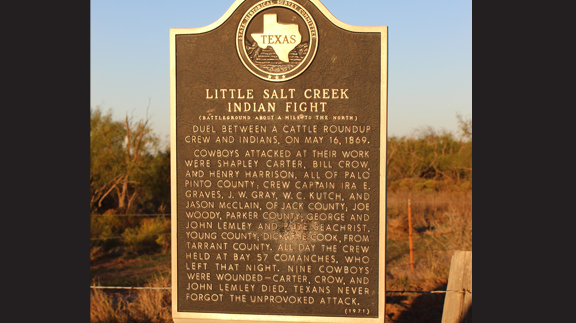
By Shannon Gillette
The Salt Creek Prairie with its rolling natural grasses and rampant wildflowers was a deceptive backdrop to the most dangerous prairie in Texas. Located in the northern section of Young County, the prairie absorbed an abundant amount of blood, shed from the battles between the encroaching white man and the Indians desperately trying to hold on to their home lands.
The Salt Creek Prairie was the location of several encounters between the Kiowa, Comanche and the area ranchers. The Indian Raid of Elm Creek on Oct. 13, 1867, resulted in the death of seven ranchers, five former Confederate Soldiers, the kidnapping of six women and children and the theft of 10,000 head of cattle. On May 18, 1871, the prairie witnessed another massacre when the Warren Wagon Train was hit by Kiowa under the command of Satanta, Satank and Big Tree. Seven members of the wagon train were murdered and forty-one mules stolen. But perhaps one of the bloodiest encounters was the Salt Creek fight on May 16, 1869.
Eleven cowboys under the watchful eye of their foreman, Captain Ira Graves were in the process of rounding up about five hundred head of their cattle about five miles southeast of present day Olney, Texas. The ranch hands were William Crow, John and George Lemley, C. L. Carter, Jason McClain, W. C. Kutch, J. W. Gray, Henry Harrison, Rube Secris, Joe Woody and a former slave known as Dick. They had noticed signs of recent Indian activity and were vigilant as they gathered the herd together. Each was armed with cap and ball six shooters. They had pointed the cattle towards the ranch and had made about four miles headway when they noticed a few more head grazing in the distance. Graves sent Carter and Kutch to gather them up. They had advanced about two miles when they spotted a large band of Indians approaching fast. Carter and Kutch could have taken cover in the sparse timber, but realized they would be leaving their companions in serious danger. The two groups met in the middle and tried to take cover in a small ravine that drained into the Salt Creek. The shallow-make shift fox hole offered very little protection.
The Indians attacked again and again. Arrows rained down on the cowboys in a continuous stream of painful blows. They attacked and retreated and attacked and retreated, but each time were met with volleys of gunfire from the small group of ranch hands. Each time the Indians retreated, they conferenced with their leader, who had stationed himself on a small hill away from the battle. After six hours of the constant onslaught, Graves developed a plan. When the Indians retreated, he ordered his men to stand and wave as wildly as they possibly could. The band of Indians, numbering over fifty strong, retreated for a final time, leaving the small band of cowboys alone.
As the dust settled the ranch hands evaluated their losses. In Kutch’s personal account given several years later, he described the aftermath: “Wm. Crow had been dead for several hours, and C. L. Carter had a severe arrow wound in his body, and had been also painfully injured with a rifle ball. John Lemley was mortally wounded in the abdomen with an arrow; J. W. Gray had been twice struck with rifle balls, once in the body and one in the leg; W. C. Kutch had two arrow heads in his knee and one in his shoulder; Jason McClain had been twice wounded with arrows; Rube Secris had his mouth badly torn, and his knee shattered; Geo Lemley had his face badly torn, and an arrow wound in his arm; and Ira Graves and Dick were also wounded.” Harrison was sent to Harmison Ranch for help.
The exhausted and wounded cowboys braved a very long and frightful night. With great relief, the morning hours brought the welcome sight of an incoming wagon. The rescuers patched the wounded as well as they could and sent word that doctors were needed desperately. The doctors did not arrive until a full twenty-four hours later. Carter passed away the next day from the injuries received during the battle. Two years later, McClain died while on another cattle drive. The cause of his death was blamed on the substantial injuries incurred on that fateful day in 1869.
While today the prairie grasses still wave and the wildflowers bloom in gorgeous arrays of colors nestled between cactus and mesquite, the blood shed is a distant memory. On crisp spring mornings it is easy to picture the deadly predicament that the cowboys faced.
This article originally appeared in the January 2016 issue of NTFR.
HOME
Preparing Spring Gardens
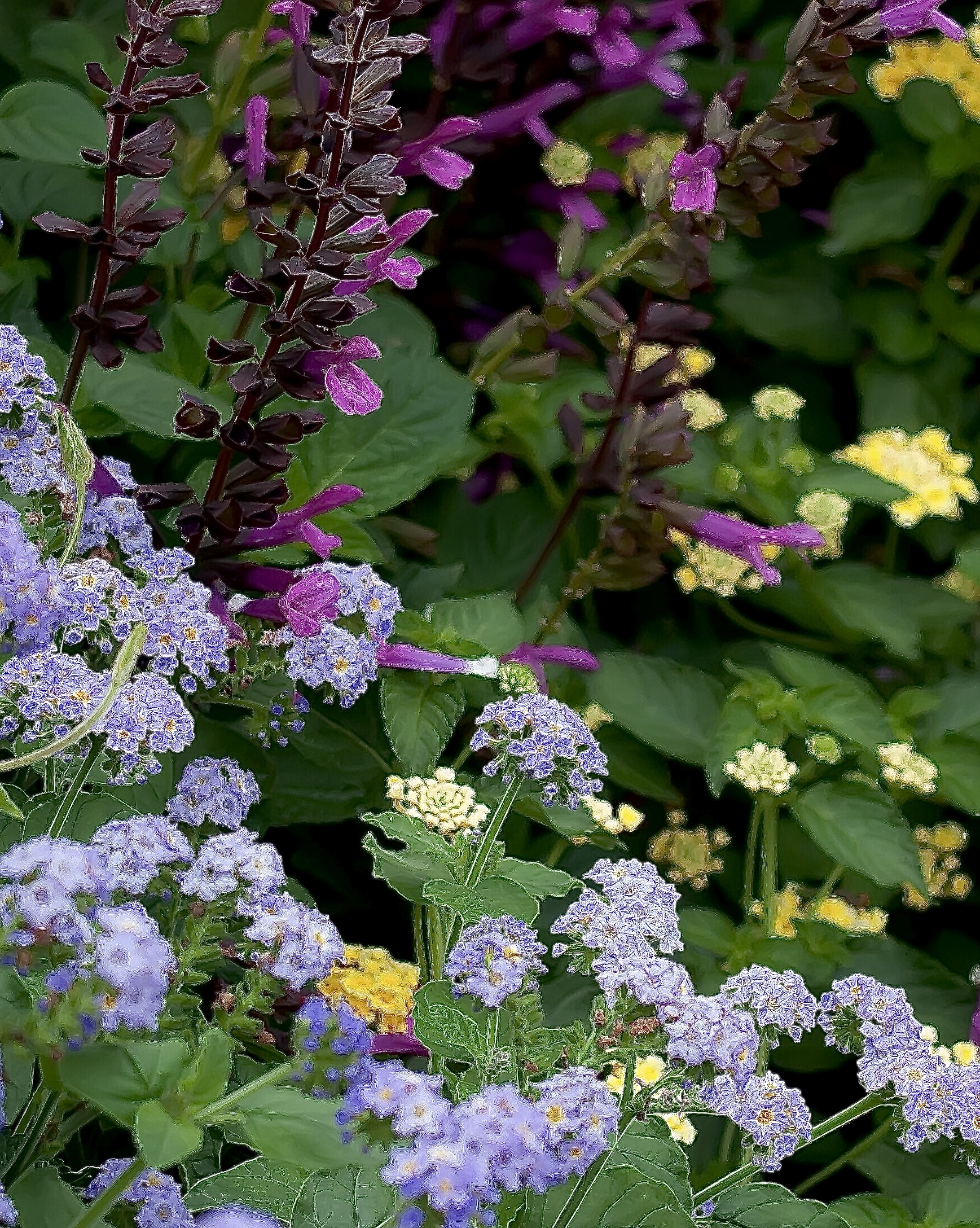
By Hannah Claxton | Editor
The North Texas area is located within USDA Hardiness zones seven and eight. The zones are categorized by predicted low temperatures for winter and timing of the first and last frosts.
Zone seven usually has winter low temps between 0 and 10 degrees F with the average date of the first frost falling between Oct. 29 and Nov. 15 and the average date of the last frost falling between March 22 and April 3.
Overall, these two zones have similar climates and growing conditions, making the options for timing and variety within a garden very similar.
In these zones, cool-season crops should go in the ground in March, meaning that soil preparation should start now.
To read more, pick up a copy of the January edition of North Texas Farm & Ranch magazine, available digitally and in print. To subscribe by mail, call 940-872-5922.
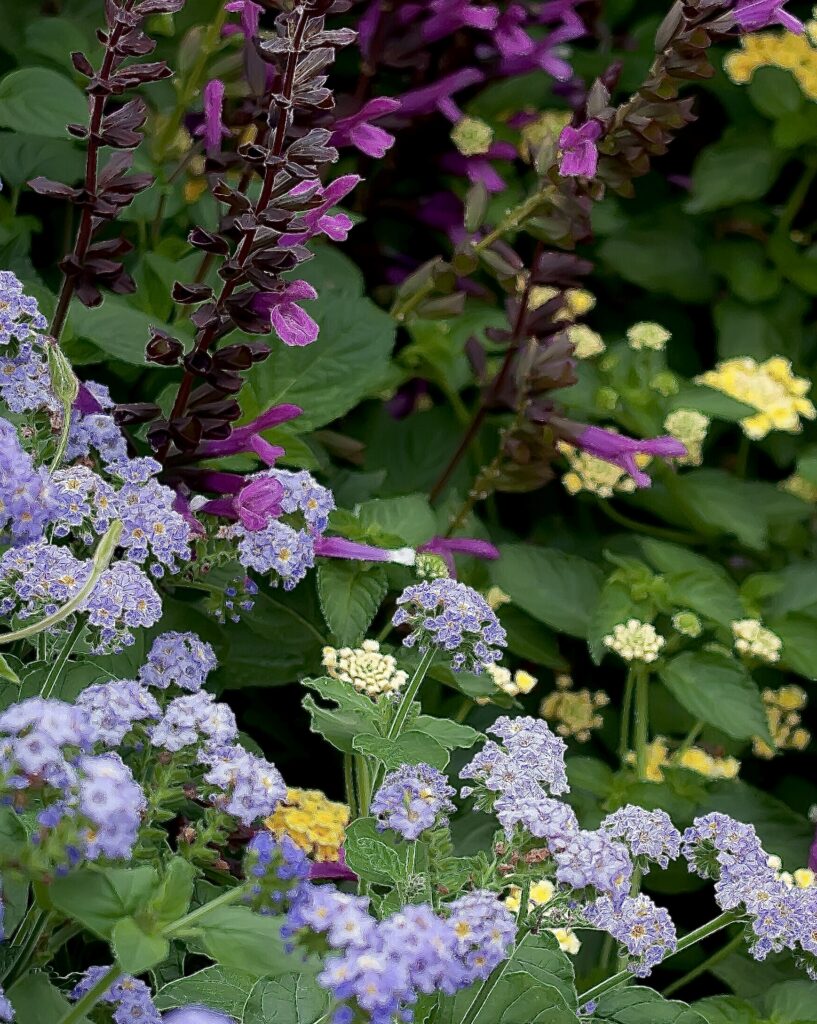
HOME
Equine Vaccinations
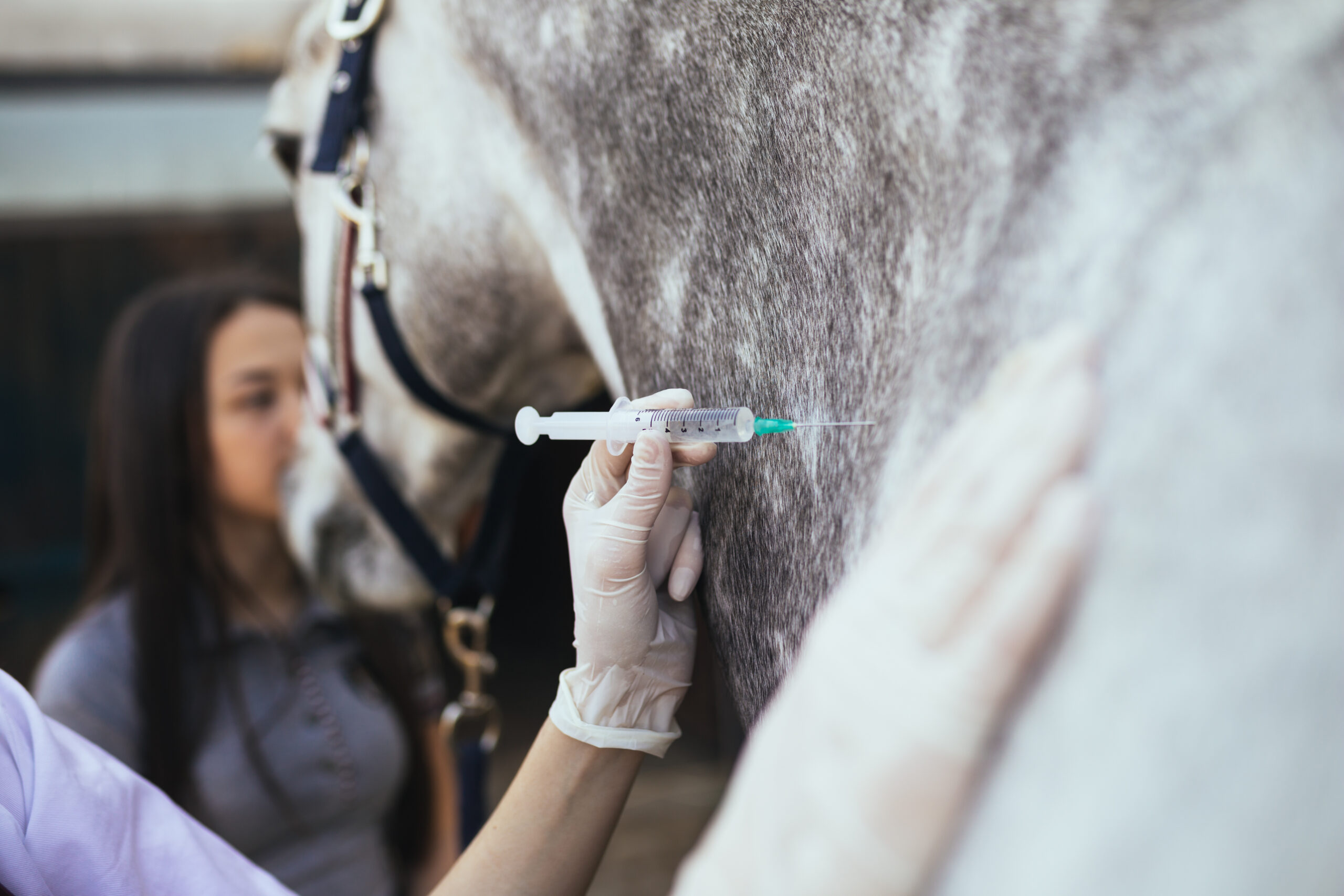
By Heather Lloyd
Vaccinations are a critical component of maintaining the health and well-being of horses, especially in environments where they are exposed to other animals, such as in the sport, show and performance arenas. Horses, like all animals, are susceptible to various infectious diseases that can spread quickly and cause serious harm.
A routine vaccination schedule helps prevent the spread of these diseases by preparing the horse’s immune system.
To read more, pick up a copy of the November edition of North Texas Farm & Ranch magazine, available digitally and in print. To subscribe by mail, call 940-872-5922.
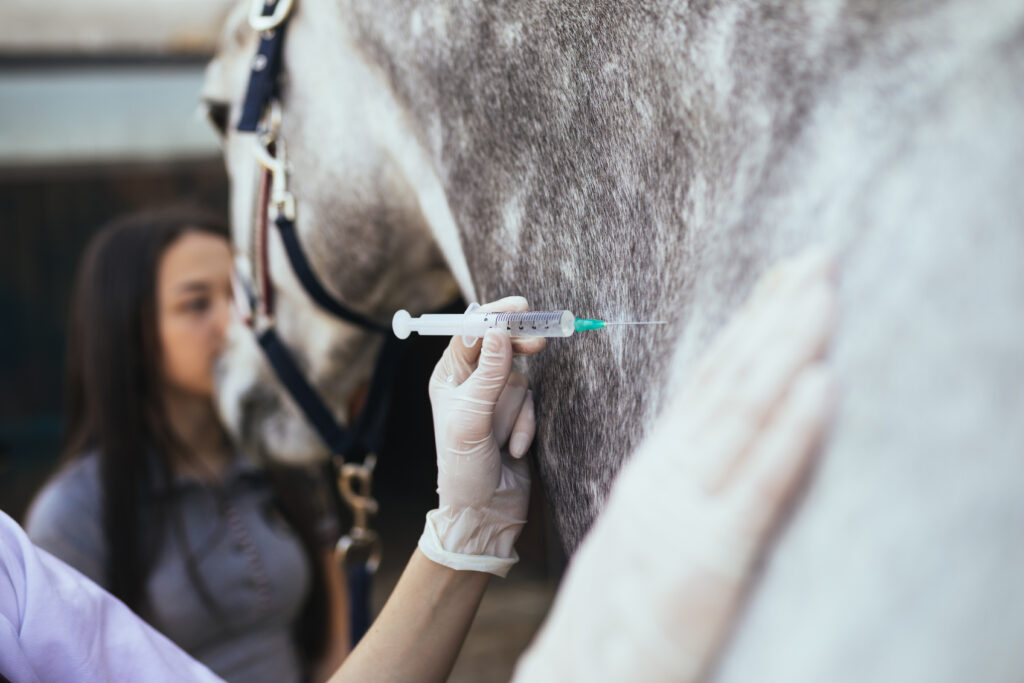
-

 Country Lifestyles2 years ago
Country Lifestyles2 years agoScott & Stacey Schumacher: A Growth Mindset
-

 Country Lifestyles8 years ago
Country Lifestyles8 years agoStyle Your Profile – What your style cowboy hat says about you and new trends in 2017
-

 HOME8 years ago
HOME8 years agoGrazing North Texas – Wilman Lovegrass
-

 Outdoor10 years ago
Outdoor10 years agoButtercup or Primrose?
-

 Country Lifestyles9 years ago
Country Lifestyles9 years agoJune 2016 Profile – The man behind the mic: Bob Tallman
-

 Country Lifestyles8 years ago
Country Lifestyles8 years agoDecember 2016 Profile, Rusty Riddle – The Riddle Way
-

 Country Lifestyles5 years ago
Country Lifestyles5 years agoAmber Crawford, Breakaway Roper
-
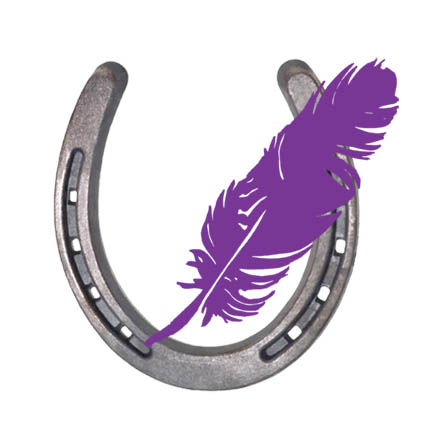
 Horsefeathers11 years ago
Horsefeathers11 years agoMount Scott: Country Humor with David Gregory




